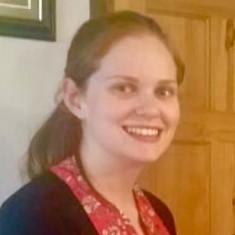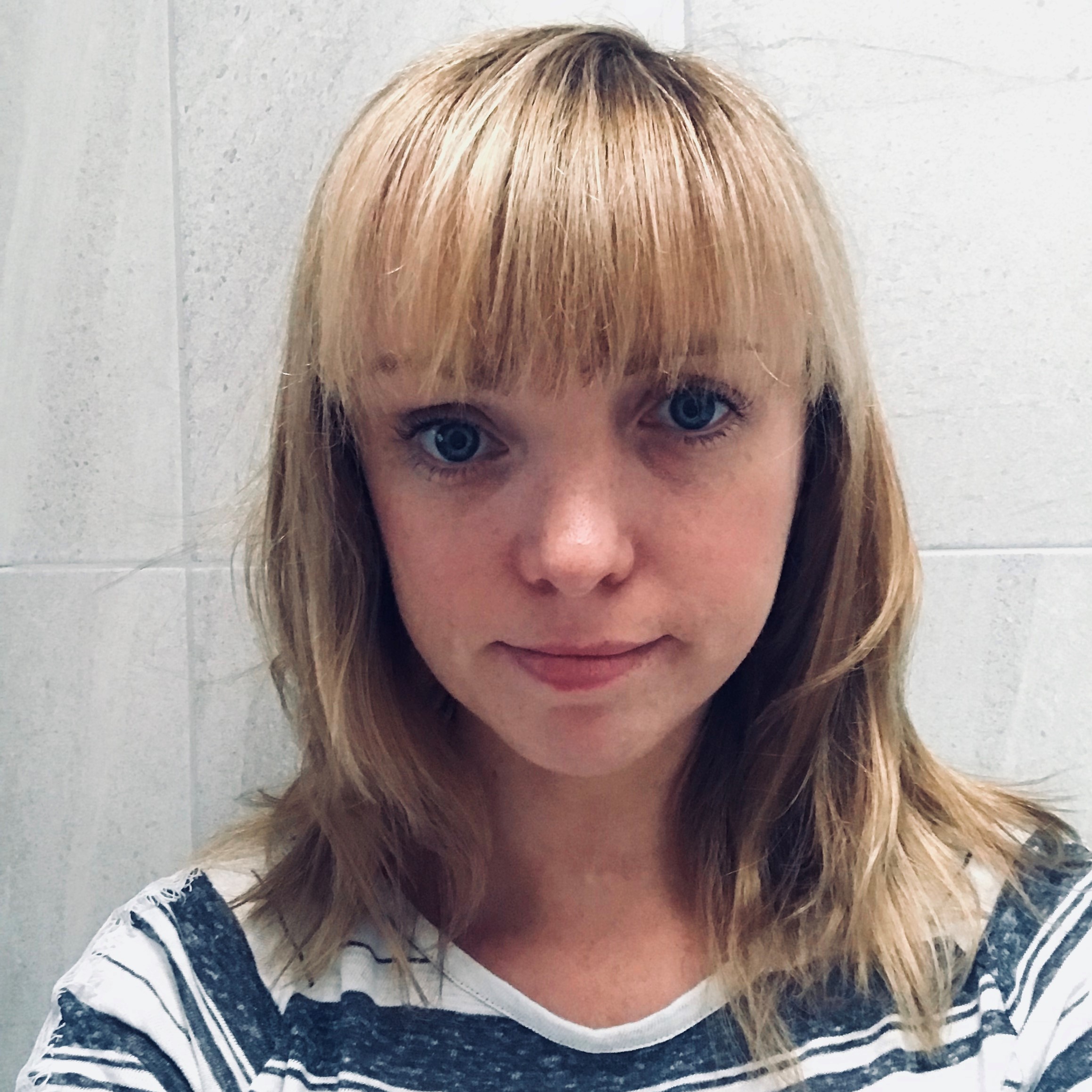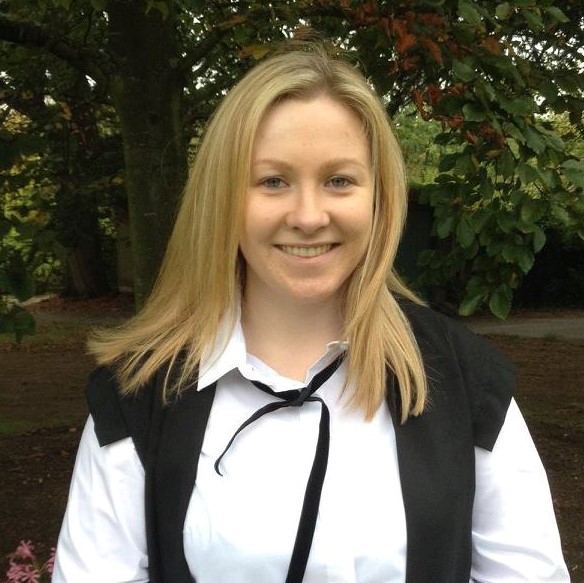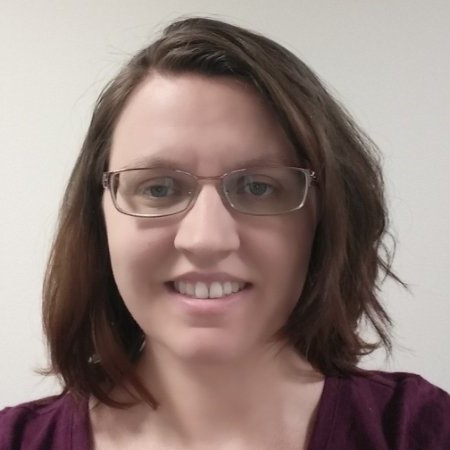TRiCC Doctoral Research
TRiCC is delighted to promote the breadth of PhD research in Trinity related to all aspects of children's lives.
Below, browse and download conference posters, or hear from the doctoral researchers themselves about where they are currently at in their research. If you want to learn more, feel free to contact them directly. For a full list of TRiCC doctoral researchers and their projects, feel free to peruse our TRiCC Doctoral Researchers' page.
Children's Research Network PhD Symposium 2019
On 28th August, the Children’s Research Network (CRN) and National University of Ireland Galway (NUIG), in association with Trinity Research in Childhood Centre, held its 2019 PhD Symposium for doctoral students from all over the island of Ireland who are currently undertaking or have just completed research related to children and young people. The event received support from the Department of Child and Family Affairs as part of What Works (formerly QCBI), funded by the Dormant Accounts fund
A major focus of the annual CRN Symposium is to facilitate dissemination and discussion of PhD research related to children and young people. It offers doctoral researchers opportunity to share research, meet and learn from other researchers and academics and exchange ideas in a friendly and supportive environment. You can learn more about the event on the Children's Research Network website
Several PhD researchers from Trinity College Dublin presented at the Symposium. Feel free to browse a selection of their posters and oral presentations here:
-
Fatimah AlsaggafSchool of Nursing and Midwifery, Trinity College Dublin / Nursing College, King Abdul-Aziz University
Presentation title: A systematic review of the impact of chronic pain on adolescents’ school functioning and pain management in school setting.
Children’s Research Network PhD Symposium 2019 -
Rong BaoSchool of Social Work and Social Policy, Trinity College Dublin
Presentation title: The lived experience of young migrant mothers in China
Children’s Research Network PhD Symposium 2019 -
Desiree Grafton-ClarkeInfant and Child Research Lab / School of Psychology / Children’s Health Ireland. Trinity College Dublin
Poster title: The Power of Parents: The Significance of Parent-Child Interaction for Child Development in Down Syndrome
Children’s Research Network PhD Symposium 2019 -
Linda KellyInfant and Child Research Lab, Trinity College Dublin
Poster title: An experimental investigation of father-child conversational balance using a shared book-reading paradigm
Children’s Research Network PhD Symposium 2019 -
Nicola LagodaSchool of Nursing and Midwifery, Trinity College Dublin
Presentation title: A systematic review of healthcare provider-patient-parent communication and decision-making within pediatric healthcare.
Children’s Research Network PhD Symposium 2019 -
Angana NandyInfant and Child Lab, School of Psychology, Trinity College Dublin
Poster title: Associations among co-parenting, parental play and toddlers’ socio-emotional competencies.
Children’s Research Network PhD Symposium 2019 -
Siobhán O’ConnorSchool of Nursing & Midwifery, Trinity College Dublin
Poster title: Family-centred care of children and young people in the acute hospital setting: A concept analysis.
Children’s Research Network PhD Symposium 2019 -
Amy StapletonSchool of Social Work and Social Policy, Trinity College Dublin
Presentation title: Participatory Action Research with Separated Young people: Overcoming dilemmas on the field.
Children’s Research Network PhD Symposium 2019
PhD Posters
PhD Researchers at Trinity College Dublin are encouraged and supported to attend conferences and other events to promote their research, network, and learn from others in their field. Below we highlight some posters.
By the way, for tips on developing your own poster, feel free to download the slides from the Designing Posters workshop, presented by Dr Derina Johnson for Trinity Development Research Week 2017.
-
Sarah ParkerSchool of Social Work and Social Policy
Poster title: Can a Mixed Methods Approach Help to Mitigate the ‘People Problem’ of Administrative Data for Evidence-based Policy Making?
Presented at The International Conference for Administrative Data Research, 21st-22nd June 2018, Queens University, Belfast -
Sarah ParkerSchool of Social Work and Social Policy
Poster title: Making Sense of the Homelessness Crisis: Using a Mixed Methods Approach to Examine Patterns of Family Homelessness in the Dublin Region
Winner of Dean of Research Award at the Trinity College Dublin Graduate Student’s Union Multidisciplinary Research Showcase, 13th March 2018 - Sinead WhitingSchool of Social Work and Social Policy Poster title: The Lived Experience of Young Adults Adopted Late by their own Long-Term Foster Carers
-
Natalie GlynnSchool of Social Work and Social Policy
Poster title: Where to go? A qualitative longitudinal study of the transition out State care in Ireland
Presented at the Young People’s Transitions: Dimensions, Difficulties and Diversity conference at the University of Edinburgh, 21 April 2017.
Get to know our Doctoral Researchers
Now and then we sit down for a chat with our Doctoral Researchers about what stage of the PhD process they are in, the challenges they are facing, and the resources helping them through! If you are a PhD student, an aspiring one, or a Supervisor, we hope you find this useful. Feel free to contact the featured researcher for more information.

It does help to be working on a topic which interests you so make sure you spend time considering if your topic really is the right one for you...
Hi Aideen, let's jump right in - What is your PhD about?
My PhD is focused on creating a communication partner intervention specifically tailored for siblings of individuals who use non-speech methods of communication, also known as Augmentative and Alternative Communication (AAC). As part of this, I plan to gather information about the experiences of individuals growing up with a sibling who uses AAC, and their previous involvement in Speech and Language Therapy with their sibling. I also plan to get other stakeholders (e.g. Speech and Language Therapists, parents, individuals who use AAC as well as the siblings) involved in giving their opinion on what the goals and structure of this intervention should be.
Sounds like a project with lots of moving pieces! What stage are you currently at?
I am currently using social media to recruit participants to take part in interviews to discuss their experiences of being a sibling of someone who uses AAC. I have completed a couple of these interviews already, so I am in the process of transcribing and analysing the data. I am also partway through completing a scoping review on communication partner interventions; however this has taken a backseat now that data collection has become the priority.
Dare I ask... How is COVID-19 impacting data collection, presuming it is? (Little escapes its effects.)
Unfortunately, it is, yes. Due to the COVID 19 restrictions there was a delay in getting ethics approval from external sites to recruit participants and complete my data collection. I had to change the format of my data recruitment and collection to be conducted online to allow me to go ahead with my research. Things are starting to move again now, but I was stuck for many months without being able to progress with my data collection, which was frustrating, especially because nothing could be done about it!
It sounds very frustrating, but I'm delighted to hear things are starting to move forward for you again. From what you've experienced to date, what advice would you give others doing or thinking of doing a PhD?
Don’t be too hard on yourself. Your productivity and motivation levels will vary, you’ll have good days and bad days, and don’t be afraid to take time off when it’s needed. It does help to be working on a topic which interests you so make sure you spend time considering if your topic really is the right one for you.
Very true - Showing ones own self loving kindness is sometimes the hardest thing to do! Thanks so much for speaking with us, Aideen, and best of luck with everything.
For more information on Aideen's research, or to contact her, go to our Doctoral Researchers page

Understand how your topic of research relates to current policy/legislation/strategy in Ireland, the European Union and within the United Nations Sustainable Development Goals (SDGs). This is in order to develop interest, rationale and networks that will support the PhD study research and ultimately drive the findings and recommendations forward...
Hi Siobán, so you are about to sit your Viva! Please give us a little summary about your research
My PhD research study explores the factors associated with the disclosure of domestic violence (DV) and subsequent positive service utilisation during and after pregnancy by women in Ireland. The study aimed to address a research gap by interviewing women who have direct personal experience of DV during pregnancy and who had sought help. This was in order to understand and identify supports and enablers, in addition to barriers and inhibitors, which enhance and allow for, or potentially detract from, safety and help seeking by women.
How did you come to be working on this topic?
I have built my career dedicated to understanding and addressing complex health and social issues affecting the most vulnerable members of society, such as; sexual and reproductive health, substance misuse and gender based violence. Domestic violence and pregnancy was an issue I first encountered working in a women’s refuge in 1998 which I felt was hidden, stigmatised and not being addressed in Ireland. As a result I sought funding to undertake a PhD on this area to enable a greater understanding of the issue and to inform policy, practice and legislation via my research.
At this stage is it all plain sailing or are there any challenges so close to the end?
Keeping my momentum, energy and enthusiasm for the PhD research at the same level as when I began my PhD in September 2015.
I can imagine once you are in that room, and reconnecting with your research journey, the energy will come rushing in! What advice would you give others doing a PhD / thinking of doing a PhD?
Understand how your topic of research relates to current policy/legislation/strategy in Ireland, the European Union and within the United Nations Sustainable Development Goals (SDGs). This is in order to develop interest, rationale and networks that will support the PhD study research and ultimately drive the findings and recommendations forward, by relating then to current policy frameworks and requirements.
Great practical advice, thank you. Best of luck in your Viva - and most importantly, try to enjoy it!
For more information on Siobán's research, or to contact her, go to our Doctoral Researchers page

I find debriefing with my supervisor and regular reflexive journaling helpful in managing the emotional aspect and also in helping me get to the core of each participant’s story...
Hi Eibhlin, thanks for taking the time to talk with us! Where do you find yourself currently in the PhD process?
I’m in my third year of a part-time PhD. I’m doing qualitative research (using an Interpretative Phenomenological Analysis approach) exploring how parents of children with Autism Spectrum Disorders make sense of their role in Speech & Language Therapy in Ireland. I’ve completed all my data collection and at the moment I’m in the depths of analysis.
"In the depths of analysis" - is that a good or difficult space to be in?
For me, this point of the PhD is as challenging as it is rewarding. My methodology demands detailed analysis of transcripts that are typically highly emotive and can leave me feeling drained at the end of the day. I find debriefing with my supervisor and regular reflexive journaling helpful in managing the emotional aspect and also in helping me get to the core of each participant’s story. As each individual case analysis gets completed and written up, I get an enormous sense of satisfaction (and relief!) that definitely makes the process feel worthwhile.
That's a really good point: while often draining, the reward of persevering through one's PhD is in itself very fulfilling. You also highlight the importance of a supportive supervisor when conducting emotionally-laden research - and the helpfulness of journaling. What other advice might you have for for PhD researchers, perhaps someone starting out on their PhD journey?
Deadlines are your friend. I am fortunate to have a very supportive supervisor who I meet with regularly. These regular meetings help to keep me motivated and focused: I know that my work in the intervening period will be discussed, as well as the accompanying written piece that I submit before each of these meetings. Meeting these deadlines has meant that I have now built up a body of written pieces that I can draw from in my final write up. It has also given me the opportunity to improve my writing and find my own style.
Think in Pomodoros. I work from home and sometimes this can be challenging. I find “The Pomodoro Technique” (Cirillo, 2018) really helps me manage and plan my time and keep me focused on my priority tasks. I use an app based on this technique called Focus Keeper. As someone who is working and studying at the same time, I have found this approach really helpful for tasks like transcribing or conducting literature reviews. I don’t use it when I am writing up as I find I need to get into more of a flow for activities like this.
Learning from outside your field. I love listening to Podcasts like “Hidden Brain” and “Rough Translations” and “Invisibilia.” I find them entertaining but I have also found the people interviewed and the background research they describe have given me new ways of looking at my data and also new theories to explore.
Fantastic advice, Eibhlin, thank you!
For more information on Eibhlin's research, or to contact her, head over to our Doctoral Researcher page

I can sometimes struggle with knowing when it’s time to say ‘that’s enough for now’. When planning the month ahead, it’s a good reminder to make sure that the core elements of the PhD are being taken care of first, and then look at what else can fit alongside them...
Hi Caitríona! So tell us, what is your PhD about?
My PhD is looking at families in Ireland who have a d/Deaf child and learn Irish Sign Language. I’m exploring their journey as language learners: the decision to learn ISL, their experiences as language learners and the use of ISL in the home – does this language learning translate into language use/ multilingualism. I’m interested in gaining the perspectives of d/Deaf children, their thoughts on this language learning and use, as well as ISL teachers.
You are currently in the recruitment phase (learn more about Caitríona's current call for participants), but what drew you initially to this topic?
It’s a bit of a long story – I was in the middle of a one-year Masters course in “Applied Linguistics and Second Language Acquisition” at Oxford, covering key theories in the field of multilingualism/ language acquisition. In this earlier research, deaf people were being used as an ‘example’ of delayed first language acquisition. However, my family experience in the Deaf world – my aunt, my mom’s sister, is Deaf – conflicted with many of their assumptions. I knew that it was common for deaf people to have a second language, English, and a first language, their native sign language. It meant that this research failed to account for, or failed to explore the possibility of, their bilingualism.
This got me thinking about sign language acquisition and how absent it is from a lot of the literature on multilingualism and language acquisition. It changed my entire Masters research project, and I ultimately did research on hearing children who are raised by d/Deaf parents (often referred to CODAs). During the Easter break of my Masters’ year, I was using Trinity library to study and I saw a poster on the Centre for Deaf Studies, made contact with the Head of the Centre, Professor Leeson, who became my PhD supervisor and within a matter of days after finishing up my Masters, I started my PhD!
What a journey! So what helps you now through the PhD that you think could be of use to others?
Well firstly I'd like to recommend a book. At a conference earlier this year, I bonded with another PhD researcher over the difficulties with PhD life, such as funding and the unknowns. She pointed me in the direction of a book which she found answered some of these questions: “The Unwritten Rules of PhD Research”.
Secondly, an excellent general piece of advice is ‘Your job at the end of this is to get a PhD, just that’. I’ve done a lot of really interesting things alongside my research/ studies to date, but this does mean I can sometimes struggle with knowing when it’s time to say ‘that’s enough for now’. When planning the month ahead, it’s a good reminder to make sure that the core elements of the PhD are being taken care of first, and then look at what else can fit alongside them.
Thanks so much for speaking with us Caitríona
For more information on Caitríona's research head over to our Doctoral Researcher page, or her call for participants

I have recently realized that it does not all need to be done in the first draft. There is an evolution and growth process to developing the storyline for the findings...
Hi Natalie, tell us a little about where you find yourself currently in the PhD process
I’m finishing up the third year of my PhD in the School of Social Work and Social Policy here at Trinity College. My project is a qualitative longitudinal investigation of leaving State care at the age of 18 in Ireland. Sixteen young people agreed to meet with me 3 times over the course of their first year after “aging out” of the care system. Now that I’ve (almost) finished data collection (i.e. I still have 2 young men to meet with for the last time), I am moving into the final write-up stage.
How are you finding this stage?
I think every stage of the PhD feels difficult/daunting in its own way, but this phase is particularly stressful for me at the moment because the task is to develop a coherent narrative for the project and what I have learned from the young people throughout this process.
Have you found any helpful resources?
There is a book called Authoring a PhD by Patrick Dunleavy that I have found some solace in reading. He reminds you that this is a process and it takes time, and he also notes that “you define the question” and “you deliver the answer”, which is both empowering and terrifying at the same time. In trying to figure out how to manage the monumental task of writing a book, I have researched a variety of tools that could help organize the large amount of data and thoughts that come along with this process.
You've touched on a very common issue: how not to drown in the large amounts of data and information accumulated over one's PhD journey! Do you have any tips or advice for early stage PhD researchers on how to go about organising their written materials?
A caution that I would have for an early-stage PhD would be to do a bit of research, find a system and stick with it because you can easily get bogged down with trying to “find” ways to be more productive instead of ever actually producing anything. As for me, I have been using a writing software called Scrivener that helps you breakdown a large manuscript into smaller more manageable chunks. This is certainly something you can do for yourself just by having separate Word documents, but I have found being able to occasionally see the flow of everything helpful. I found Scrivener through a friend, but there are other programs out there like Manuscripts and Citavi. If this is something you think you might like, I would suggest looking at some reviews and product sites to figure out what features matter to you (for instance, I needed something that worked on both Mac and PC so that I could work at home or in the office).
Despite helpful tools like Scrivener and EndNote, I have found the most difficult part about this stage to be putting pen to paper and making a narrative that is coherent. That said, I have recently realized that it does not all need to be done in the first draft. There is an evolution and growth process to developing the storyline for the findings, so I am working on getting over the hump and letting myself figure that out while still producing things that will (hopefully) eventually be worthwhile.
Thanks so much Natalie!
For more information on Natalie's research, or to contact her, pop across to our Doctoral Researcher page
If you would like to promote your PhD research on this page, contact Elizabeth O'Shaughnessy at oshauge@tcd.ie

